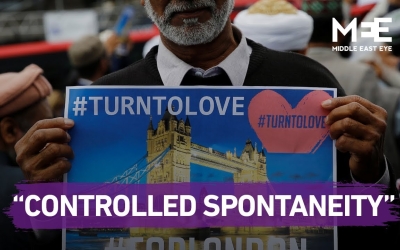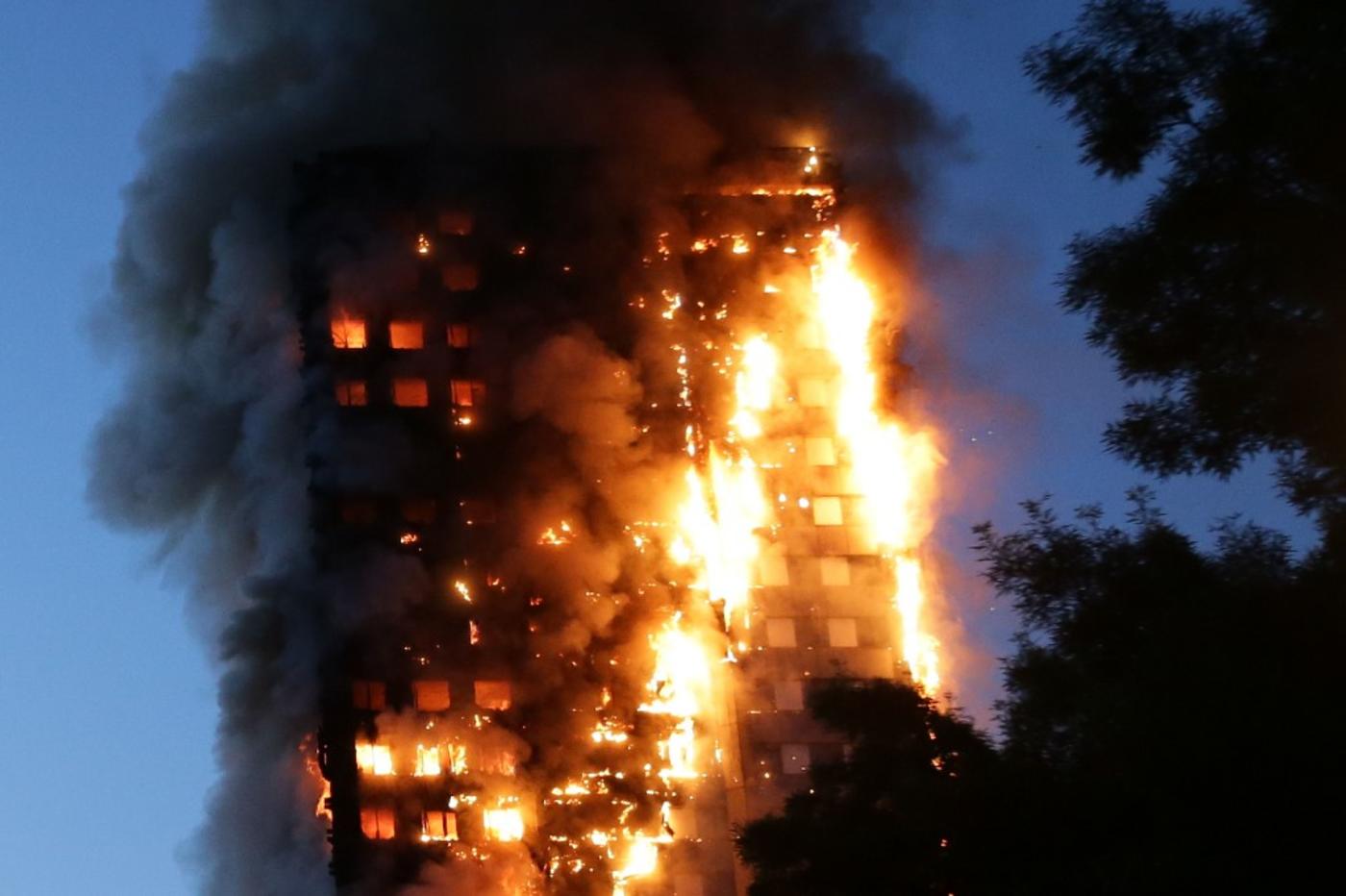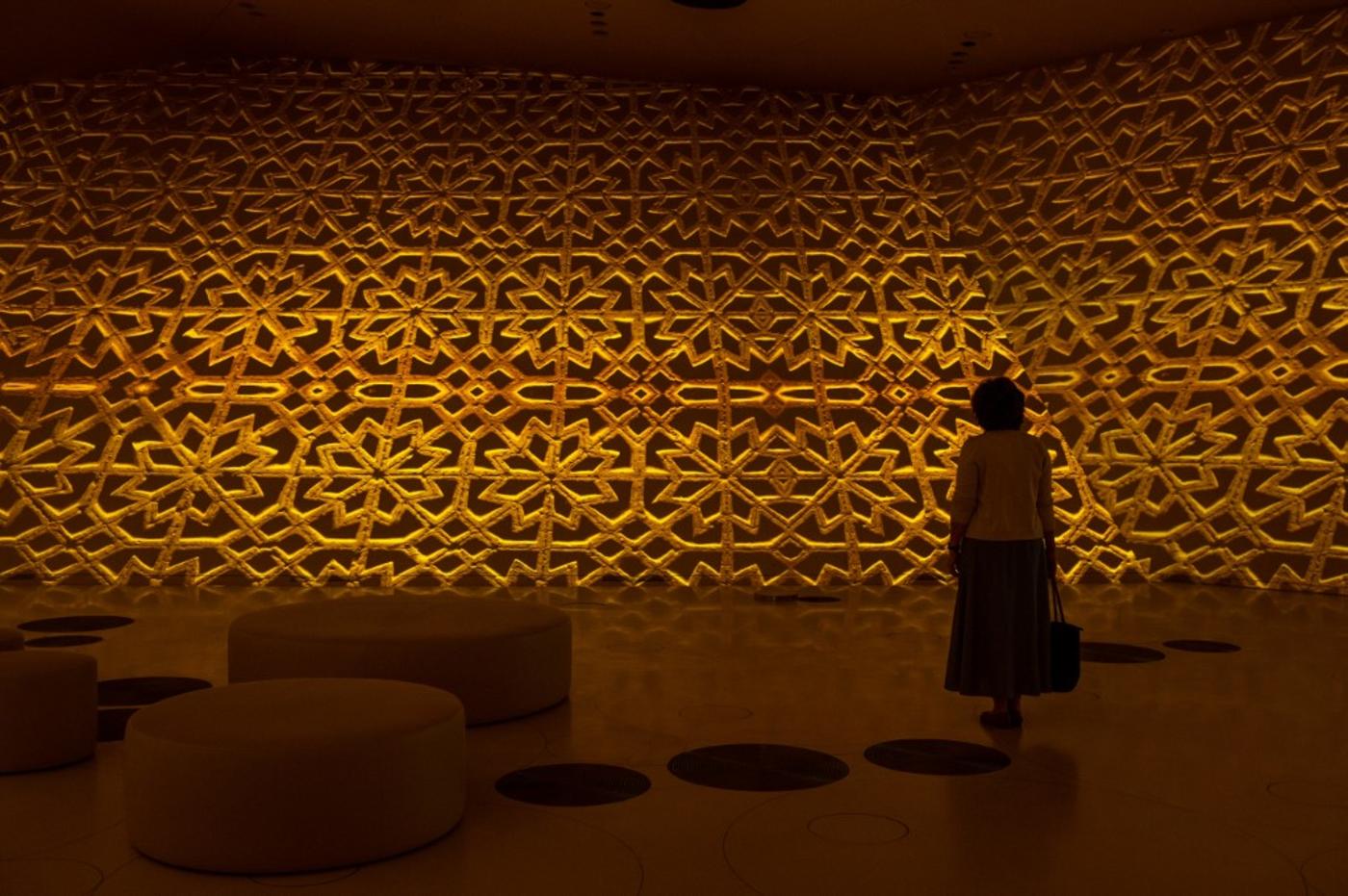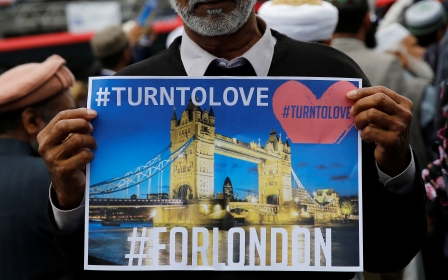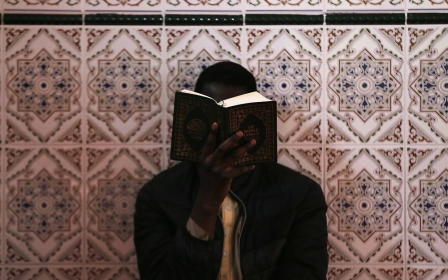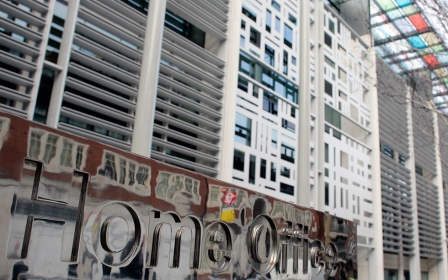EXCLUSIVE: UK experts working on post-terror attack planning for Gulf states

British government officials who prepare for terrorist attacks by pre-planning social media campaigns that are designed to appear to be spontaneous public responses have established similar programmes for a string of countries across the Middle East and North Africa.
Middle East Eye has established that UK emergency planners are working closely with the governments of Saudi Arabia, Qatar, the UAE, Bahrain and eight other countries.
They are assisting with the development of plans to prepare for a range of disasters, including terrorist attacks, and sharing techniques that are currently employed in the UK to shape public responses.
British emergency planners have developed a particularly close relationship with Saudi Arabia, where they have helped to establish an organisation at the Royal Court in Riyadh called the National Risk Unit.
That unit is currently under the management of a former lieutenant general in the British Army and a former deputy head of the Civil Contingencies Secretariat (CCS), the British government body that prepares emergency plans for use in the UK.
In recent years, the CCS has been pre-planning for terrorist attacks by testing hashtags, selecting Instagram images and designing posters that are all intended to appear to be impromptu responses to terrorist attacks from members of the British public.
'Controlled spontaneity'
In operations that some contingency planners term “controlled spontaneity”, politicians’ statements, vigils and inter-faith events are also carefully planned in readiness for any terrorist attack.
The purpose of the operations, according to a number of people involved in their creation, is to shape and direct public responses, encouraging individuals to focus on a sense of unity and empathy for the victims, rather than reacting with violence or anger.
Many of the operations are based upon plans that were drawn up in the UK to channel public anger in the wake of any attack on the 2012 London Olympics.
Although there was no terrorist incident at the 2012 Olympics, variants on this recovery programme are said to have been deployed in the wake of every attack in the UK since then.
Examples identified by MEE include the posting of pre-designed posters at the scene of the London Bridge attacks of June 2017 in which eight people were murdered; a gathering of imams from across the country following the same attack; and a Twitter, Facebook and mainstream media campaign that was employed later that month, shortly after a man drove his van into a group of people outside a mosque in north London, killing one person and injuring 10 others.
The CCS now appears to regard itself as a world leader in the development of programmes intended to shape public responses to terrorism – and the UK government has signed lucrative training contracts with as many as 30 countries around the world.
However, many of its overseas partners were said to have been deeply dismayed by the British authorities’ response to the fire at Grenfell Tower, the 24-storey housing block in west London which was engulfed by flames in June 2017 with the loss of 72 lives.
The chaotic response to that disaster led to a breakdown in local people’s trust in both local and national government, culminating in Prime Minister Theresa May being chased from the scene by an angry crowd.
One UK emergency planner says: “There were calls coming in from various governments saying: ‘You were over here a few weeks ago telling us you were the world leaders in dealing with this sort of thing. How exactly are you doing at Grenfell?’”
Bespoke courses in Arabic
The overseas contingency planning contracts help to finance the CCS Emergency Planning College in Yorkshire in the north of England, a facility which says it is “providing services to the resilience community worldwide”.
The college runs courses that teach emergency planners how to “mobilise the extraordinary reach of social networks to deliver a more effective response”, and ways of “engaging children in schools in the ‘resilience message’”.
The college has trained planners from 30 countries, 12 of them in North Africa and the Middle East, and says it been “designing and delivering bespoke courses in Arabic for the United Arab Emirates, Qatar, Bahrain and Saudi Arabia, both in the UK and in-country”.
Its trainers have run courses for more than 350 Saudi officials and more than 1,500 from the UAE.
Middle East Eye delivers independent and unrivalled coverage and analysis of the Middle East, North Africa and beyond. To learn more about republishing this content and the associated fees, please fill out this form. More about MEE can be found here.


